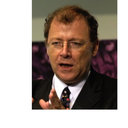News from Tartary: an ethnopharmacological approach to drug and therapeutic discovery.
الكلمات الدالة
نبذة مختصرة
Ethnopharmacology aims to identify new therapeutic agents based on their traditional use. It begins by the identification of disease states, and of the traditional therapies for these, most commonly herbals. Herbals of interest are selected from ethnopharmacological surveys, and tested on experimental models of the diseases of interest. Once the activity of the traditional remedy is demonstrated, including dose-dependence, if possible comparatively to reference medications, the active ingredients can be explored, if possible using bioguided extraction. Identified molecules can then be further developed as medicinal products or pharmaceutical medicines (e.g., artemisine), or the herbal product can be developed as such (e.g. St John's wort). We provide examples of various study programmes, concerning the antiplatelet and antithrombotic effects of Armagnac extracts from Southwest France; antithrombotic and antihypertensive effects of extracts of Ocimum basilicum L; antithrombotic, antihypertensive and antihyperlipidemic effects of Cydonia oblonga; Antiproliferative and antithrombotic effects of Abnorma Savda Munziq of traditional Uyghur medicine; and the antidiabetic and hepatoprotective effects of Centaurium erythraea Rafn, Artemisia herba-alba Asso and Trigonella foenum-graecum L., all in collaboration between University of Bordeaux, France, Xinjiang Medical University in Urumqi, China and University Mentouri in Constantine, Algeria.


